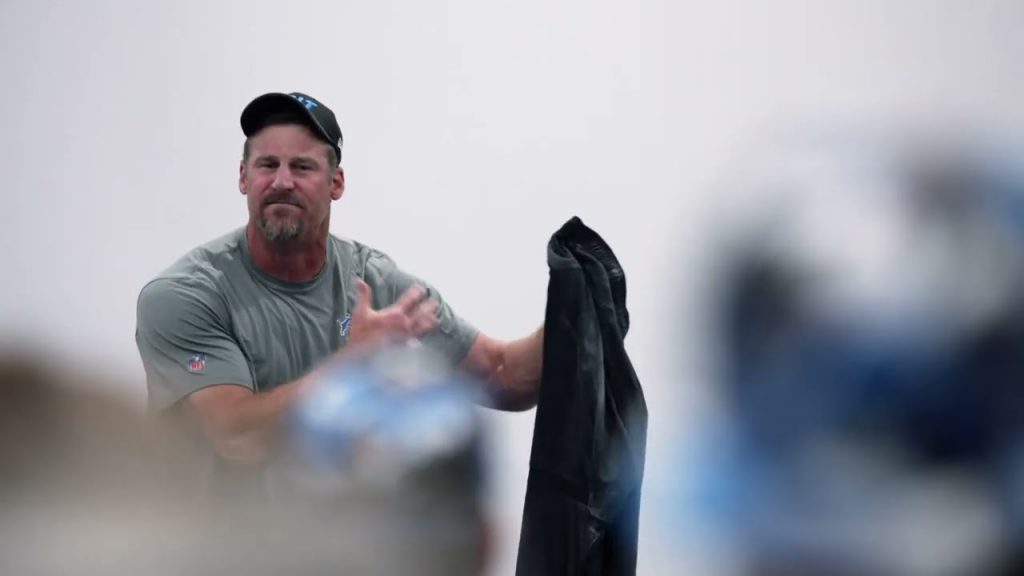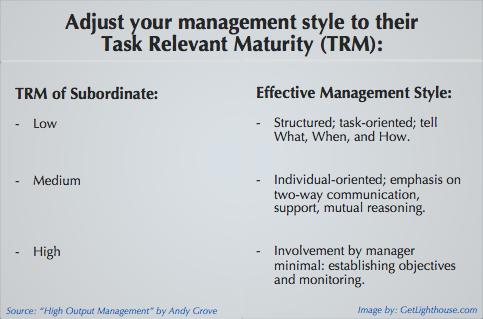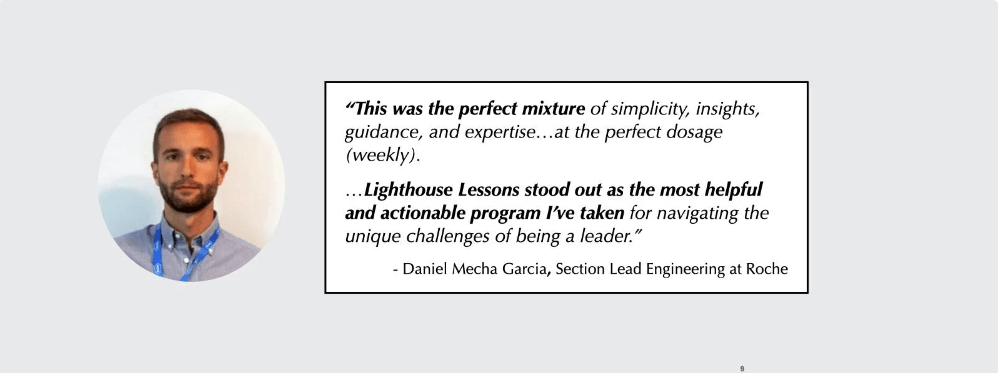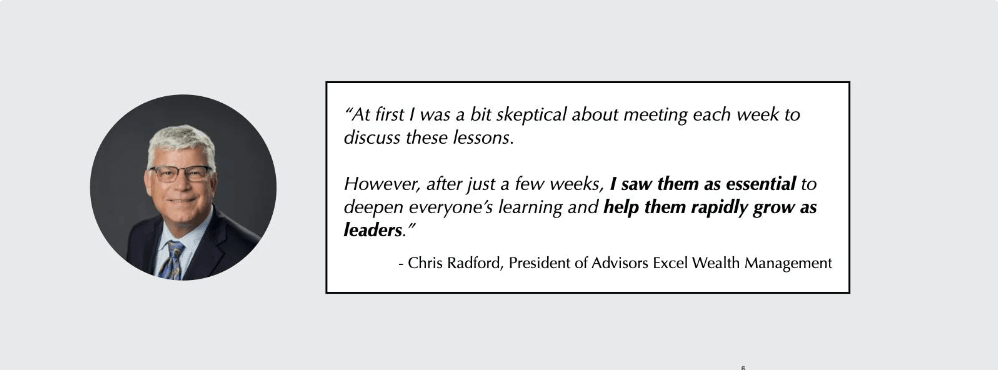It's super helpful to know what you like when we write this newsletter. Thanks to everyone who took our survey last week. It turns out, the majority of you like all the sections of the newsletter, and there's a variety of ways you'd like to support the newsletter. (Note: you should have an email from us if you marked interest in things we haven't offered previously).
In today’s edition, we take a look at how to change a culture, some interesting research about experience, and one of my favorite concepts from 7 Habits of Highly Effective People: the Emotional Bank Account.
Let’s dive in…
Table of contents:
- 🥘 Food for Thought on Changing Cultures
- 📰 News & Reports for Managers on Novices vs. Experts
- ❤️ Your best time to Learn How to Lead from the Heart
- ⭐ BONUS: Share-worthy reader write-in advice
Note: This is a preview of our weekly leadership newsletter, Lighthouse Leadership Weekly (LLW).
To get this sent to your inbox every week, along with our latest long form essays on this blog, you can sign up here.
🥘 Food for Thought
"All the stuff that's been here that has kept us from winning...if we really want to go where we want to go we got to get all the rest of this out of our stuff man...all this dirt...everything that's in our jeans this last bit of losing has got to get out of here. [It] crushes us, costs you a game, costs you a season, costs you the playoffs, costs you a championship game, cost you a Super Bowl... we got to get out man ...we own that game we finish that game" - Dan Campbell, Head Coach of the NFL's Detroit Lions
Dan Campbell and the Detroit Lions just won their first playoff game in 31 years.
Yes. Thirty-one years.
And it's no mistake. Campbell has truly transformed a struggling organization. He changed the culture.
And that's where the quote comes from... this video after they had a tough loss earlier in his turn around:

He brought a dirty pair of jeans in to be a metaphor for his team of washing away and getting the old losing ways out.
And while at times, he's pretty far on the spectrum of "meat head football coach," his message has resonated with the team and they've gotten better every year with him as coach:
- 2021: 3-13-1
- 2022: 9-8-0
- 2023: 12-5-0
This kind of change is really hard, which is why I want to recognize it this week, and talk about how far from the American football field you can apply some of the same lessons.
Changing a culture is hard, but you can do it.
If you need to change the culture at your company or team, you're going to need a lot of intestinal fortitude, a healthy dose of courage, and then follow these tactics:
- Be consistent: First things first. If you cannot be consistent in your messaging and actions, you can't change a culture. No matter how good an idea it is, others will resist and ignore a hypocrite who can't even lead themselves.
- How Dan Campbell did it: Even during the rough first year, Campbell stayed on message, and carried it into Year 2. As you can see in the change in record, sticking to the plan started to pay off.
- Lead the way: Another way to sabotage your efforts is to become a leader who is a "do as I say, not as I do" kind of leader. Your example is the most powerful message you can send, so make sure you're living out the values you're trying to bring into your team.
- How Dan Campbell did it: Dan is a bit of a wild man. He would literally do pushups with his team, and frankly still looks like he could play. His energy is infectious and leads the way by the example he set each day at practice.
- Repeat yourself: The top mistake otherwise strong leaders make is thinking that if they say something once it's enough. Wrong. You have to repeat yourself so much you get sick of it. You only can stop when you hear everyone on your team saying your message without your prompting. That means they finally internalize it.
- How Dan Campbell did it: In Campbell's opening press conference, he talked about biting knee caps to represent how hard the Lions would play and fight to win every game. He kept repeating those kinds of messages, even if they seemed outlandish, until he started seeing the team play with that level of intensity and grit, too.
- Be patient: Culture change is not an overnight success story. It takes time, and there will be setbacks along the way. You have to stay the course and keep pushing, even when it seems like it's not working.
- How Dan Campbell did it: As you can see in the video above, he embraced that it would take awhile to shake off the Lions' losing ways. And major credit to the owners for giving him leeway even after the first season was a dismal 3-13-1.
- Recognize progress: While the journey to change a culture is a long one, there will be milestones along the way. Celebrating and recognizing those is a great way to both keep your morale up, and to show your team that change is happening.
- How Dan Campbell did it: While most of the speeches are a bit too profanity-laced to share, Campbell regularly recognized progress in his post-game speeches, at practices, and other opportunities.
These tips are a great place to start if you need to change your culture, but it's only the scratching the surface.
If this subject is on your mind and you want to go deeper, start with these posts:
- Learn the one key to great company culture
- Get more detailed tips on changing company culture here and consider how a grand gesture can help get the ball rolling
- A detailed examination of multiple company cultures and what it means
📰 News & Reports for Managers
📌 Novices seek praise, experts seek criticism
I cam across this tweet the other day and it was really striking:
Novices seek praise. Recognizing strengths builds confidence to keep going.
— Adam Grant (@AdamMGrant) January 6, 2024
Experts crave criticism. Seeing shortcomings reveals avenues to keep growing.
Preferring corrections to compliments is a sign of skill. The better you get, the more determined you become to get better. pic.twitter.com/voo0jP7t76
This insight makes sense. If you're new, you don't want to get discouraged. You probably already know what you're doing wrong and that you don't know much. That makes praise a novelty; hey, you're finally doing something right!
Meanwhile, when you become an expert, now the novelty is actually hearing something you could get better at. If you're truly passionate about what you do, then you're curious about improvement. You are also probably confident in your work, so feedback isn't threatening to you the way it would be if you're brand new at something.
Now, apply it to your team.
The most effective thing you can do is keep this research in mind with your team.
If you've been reading our blog long, you know we talk regularly about the idea of Task Relevant Maturity (detailed explanation here), which is best summarized by this table:

What you essentially layer on top of Task Relevant Maturity is what you also do:
- Low TRM: Look for opportunities to praise them, so you motivate them to keep improving.
- High TRM: Look for opportunities to give constructive feedback when appropriate, to help them continue growing and avoid stagnating.
It may seem like a simple thing, but layering on these kinds of tactics is what takes you from an average to stellar leader.
❤️ Your best time to Learn How to Lead from the Heart
The first two runs of our Lighthouse Lessons program have gotten rave reviews. Here's just two examples:

And on our Group Discussions that go with each week's lessons:

Whether you want to grow individually as a leader, or invest in a lightweight, super effective way to grow a group of your managers, this program is a great option for you.
And the best news is that early bird pricing ends this weekend, so now is the best time to sign up to join us: https://leadfromtheheart.getlighthouse.com/
Don't wait! Not only do prices go up Monday, but this is the 3rd and *final* run of the program, so it's your last chance to join us.
Learn more about the program, and reserve your spot now here.
⭐ BONUS: Share-worthy reader write-in advice
Last week, we shared a question we love asking during interviews to tell if someone will be a good leader ("Are you someone whose happiness can come from someone else's success?") and we asked readers if they had a similar question they loved to use.
One reader, David from El Dorado County Child Protective Services, had a fantastic suggestion:
"I sit on most of our hiring interviews when we have open social worker positions to fill, my favorite question to ask is below.
"Tell us about the last time you apologized to someone for something you did or said. How did you come to the realization that you were wrong?"
I have gotten some interesting responses, especially from candidates who think they are never wrong, rewinding the last month, years in their head trying to think of the last time they said I'm sorry."
Especially for roles where self-awareness and humility are important, this is a great suggestion.
Thanks for sharing, David!
Sign up to get this newsletter & our latest blog posts straight to your inbox:




